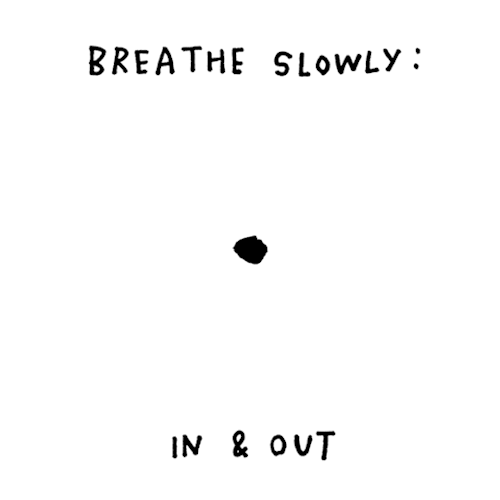How To Never Fall Behind In Classes
How to Never Fall Behind in Classes
Alternatively titled: How to Use Your Planner or How Organization and Discipline Will Get You Better Grades
This is my full guide on how to use your planner effectively and make sure that you are never missing deadlines or falling behind in classwork and homework. This is definitely more about the university level and works best with a dated planner, rather than a bullet journal. Let’s get started!
Get all of your syllabi together and write down dates. Go through one class at a time and mark down all of your major tests and assignment due dates. I recommend putting these dates into the monthly and weekly views, and perhaps coming up with a symbol or other indicator that tells you they are of utmost importance.
Make a weekly schedule of when to complete readings and do a weekly review of notes. Instead of trying to randomly decide when to do these things, assign a date for each task for each class. If you have a tutorial on Tuesday, do the assigned readings for it every Wednesday. I recommend scheduling one to two weekly tasks per day, and to leave a few days open, whether it be weekends or days when you have a lot of classes.
Make a master list of assignments. I find that sometimes, even having due dates in the calendar view isn’t enough, and they can still sneak up on you. The master list will be a good place to double check if you have any deadlines approaching easily.
In the week or so before a due date, create a checklist of smaller tasks needed to complete the assignment. Set individual due dates for each smaller task by working backwards from the due date. Smaller tasks may include finding sources, making an outline, writing a rough draft, and editing and adding references to create a final copy. Write the smaller tasks into your daily to-do list.
You can also do this with studying for tests, but the checklist would look slightly different. You could either sort by study method (first do flashcards, then do essay outlines, etc.) or sort by the topics you need to study.
Stick to the schedule you have made. Obviously, if something comes up and you need to move your to-do list around, do so! But if you aren’t doing anything and you see readings on your list of daily tasks.. do them. Having the plan set out like this makes it easier for you to remain disciplined.
Why use this method?
By creating a schedule for repeated weekly tasks like completing readings, you make sure that you can’t repeatedly push off smaller tasks until you are weeks behind. I don’t think it is very reliable to just will yourself to do readings, or to keep up with them without tracking it.
By writing down all of your due dates, you will never be shocked to find out something is due the night before. You will know and you will be prepared.
By creating smaller checklists of tasks to complete before a major test or assignment, you will never find yourself in a situation where you have an essay due in a few days and haven’t even started. You will be following a timeline and making sure you don’t have to rush.
I know this system may seem rigorous, but planning is the only way you can keep on top of your workload in university! Falling behind is a lot harder if you are organized and disciplined, and being on top of your workload will help you a lot when it comes to exam times… no cramming and all-nighters if you have been consistent all semester!
More Posts from Drtanyasinghsworld and Others
If you can influence in the long-term by leaving behind a legacy, to me, that’s real power.
Ameenah Gurib-Fakim, President of Mauritius (via forbes)
Want to Improve your Self Discipline?
1. Make a genuine commitment to being a disciplined person.
2. Be honest about your weaknesses, distractions, and any habits that might knock you off your course.
3. Make a realistic plan. Write it down, or share it with a friend who will help you to be accountable.
4. Design your day to avoid those temptations that will likely undermine your self discipline.
5. If necessary, change your routine.
6. Reward yourself for small steps in the right direction.
7. Although you are aiming to make change a habit, accept that there are likely to be times when you fail – and if you do, just move on as you can always start again.


Some of the many ways your intuition can speak to you, Instagram










Positive Words.

Roasted Garlic Chicken with Asiago Gravy
Ingredients
1 tablespoon oil
4 (6 ounce) bone-in, skin on chicken thighs
salt and pepper to taste
1 onion, diced
20 cloves garlic, peeled
2 teaspoons fresh thyme, chopped (or 1 teaspoon dry thyme)
2 tablespoons flour
1 cups chicken broth
½ cup asiago cheese (or parmesan), grated
salt and pepper to taste
Directions
Heat the oil in a large sauce pan over medium-high heat, add the chicken (seasoned with salt and pepper) and brown, abut 3-5 minutes per side, before setting aside.
Add the onion and garlic and saute until the onions are tender and the everything is lightly browned, about 3-5 minutes.
Sprinkle in the thyme and flour and cook for a minute.
Add the broth and deglaze the pan by scraping the brown bits off of the bottom of the pan with a spoon while the broth is sizzling when added.
Mix the asiago into the sauce and season with salt and pepper to taste.
Add the chicken, cover (with a lid or foil) and roast in a preheated 400F/200C oven for 15 minutes OR turn the heat down to medium-low and simmer on the stove top for 15 minutes.


The “Mental Illness Recovery Series” book has 100 inspirational stories that explores the exhausting, but noble journey of recovery.
📍🌍🌏🌎 Where to buy it 😊 = http://awakesociety.com/mental-illness-recovery-book/ 📍🌎🌏🌍
Mental disorders found in the book:
🔻Depressive disorders
🧠Anxiety disorders
🔺Bipolar & related disorders
🧠OCD & related disorders
🔻Eating disorders
🧠Schizophrenia spectrum & psychotic disorders
🔺Conduct disorders
🧠Dissociative disorders
🔻Neurodevelopmental disorders
🧠Personality disorders



Weed didn’t make you dumb, tobacco did
More on the stigma here.

#WhatCanUDoDoWhatUCan #LoveStory #TheSoulIsYouAndLoveIsYours #Καλημέρα #Comida #ichMagDich //fb pages n take care you all . Stay happy n bless n count your blessings name them one by one
-
 keikokasugawitch-blog liked this · 2 weeks ago
keikokasugawitch-blog liked this · 2 weeks ago -
 fallen-stardeluded liked this · 1 month ago
fallen-stardeluded liked this · 1 month ago -
 loststarslight liked this · 1 month ago
loststarslight liked this · 1 month ago -
 bagsies liked this · 1 month ago
bagsies liked this · 1 month ago -
 fashionislife56-blog liked this · 1 month ago
fashionislife56-blog liked this · 1 month ago -
 lovelyroseybunny liked this · 1 month ago
lovelyroseybunny liked this · 1 month ago -
 veepriv reblogged this · 1 month ago
veepriv reblogged this · 1 month ago -
 toriiee liked this · 1 month ago
toriiee liked this · 1 month ago -
 diyrewolf liked this · 1 month ago
diyrewolf liked this · 1 month ago -
 katmemow reblogged this · 1 month ago
katmemow reblogged this · 1 month ago -
 katmemow liked this · 1 month ago
katmemow liked this · 1 month ago -
 dashielldeveron reblogged this · 1 month ago
dashielldeveron reblogged this · 1 month ago -
 raat-ki-raani liked this · 2 months ago
raat-ki-raani liked this · 2 months ago -
 swangrobinson reblogged this · 5 months ago
swangrobinson reblogged this · 5 months ago -
 swangrobinson liked this · 5 months ago
swangrobinson liked this · 5 months ago -
 multidimensionalfang1rl liked this · 5 months ago
multidimensionalfang1rl liked this · 5 months ago -
 conventicles reblogged this · 7 months ago
conventicles reblogged this · 7 months ago -
 numberonekoalacreation liked this · 7 months ago
numberonekoalacreation liked this · 7 months ago -
 theeeeeeeeetumble liked this · 8 months ago
theeeeeeeeetumble liked this · 8 months ago -
 jemcarstairsgf liked this · 8 months ago
jemcarstairsgf liked this · 8 months ago -
 natalia-04 liked this · 8 months ago
natalia-04 liked this · 8 months ago -
 sublyme01 liked this · 9 months ago
sublyme01 liked this · 9 months ago -
 v1viluv liked this · 9 months ago
v1viluv liked this · 9 months ago -
 sprook-children liked this · 9 months ago
sprook-children liked this · 9 months ago -
 noahnoire liked this · 10 months ago
noahnoire liked this · 10 months ago -
 kartoonkrazy reblogged this · 10 months ago
kartoonkrazy reblogged this · 10 months ago -
 studiousboo reblogged this · 10 months ago
studiousboo reblogged this · 10 months ago -
 doeyedbambi liked this · 10 months ago
doeyedbambi liked this · 10 months ago -
 melancholic-devil liked this · 10 months ago
melancholic-devil liked this · 10 months ago -
 epiarchive reblogged this · 10 months ago
epiarchive reblogged this · 10 months ago -
 kovskyswan reblogged this · 10 months ago
kovskyswan reblogged this · 10 months ago -
 kovskyswan liked this · 10 months ago
kovskyswan liked this · 10 months ago -
 wellstartasecretsociety reblogged this · 10 months ago
wellstartasecretsociety reblogged this · 10 months ago -
 looosechange liked this · 11 months ago
looosechange liked this · 11 months ago -
 zebravalis liked this · 1 year ago
zebravalis liked this · 1 year ago -
 gideon-ephraim liked this · 1 year ago
gideon-ephraim liked this · 1 year ago -
 compasspointlibrary liked this · 1 year ago
compasspointlibrary liked this · 1 year ago -
 fairylighttea reblogged this · 1 year ago
fairylighttea reblogged this · 1 year ago -
 cute-ish-notes reblogged this · 1 year ago
cute-ish-notes reblogged this · 1 year ago -
 cute-ish-notes reblogged this · 1 year ago
cute-ish-notes reblogged this · 1 year ago -
 cute-ish-notes liked this · 1 year ago
cute-ish-notes liked this · 1 year ago -
 wearecampaign liked this · 1 year ago
wearecampaign liked this · 1 year ago -
 itskillerbarbie liked this · 1 year ago
itskillerbarbie liked this · 1 year ago -
 therealsadielove reblogged this · 1 year ago
therealsadielove reblogged this · 1 year ago
